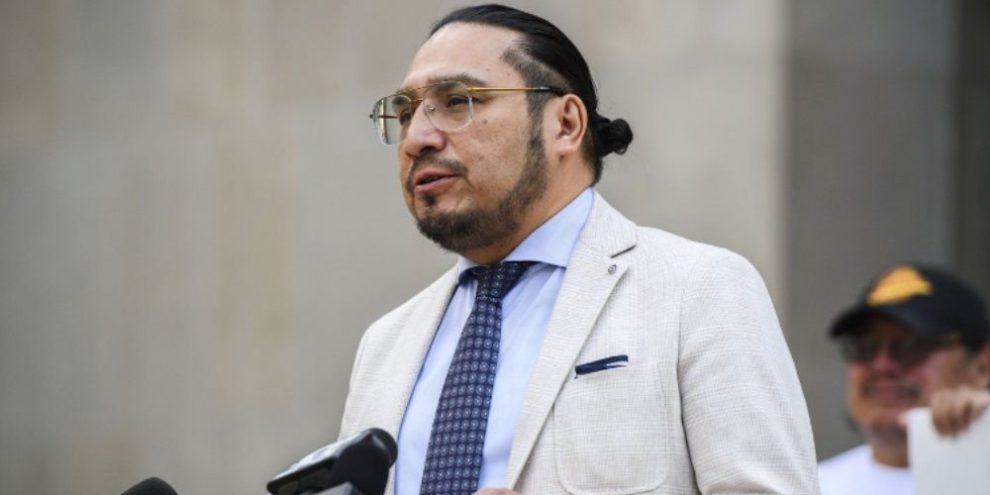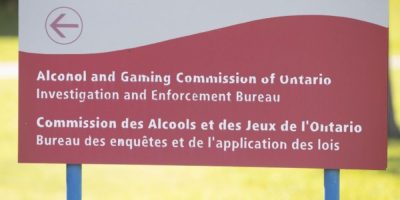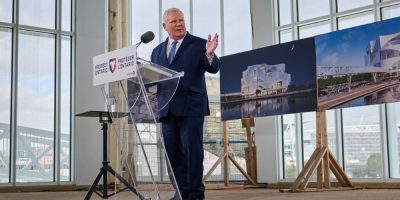
Updated September 30, 2024 @ 2:09pm
Ontario's only First Nation representative at Queen's Park plans to soon table proposed legislation, in his own Indigenous language, to have the National Day for Truth and Reconciliation declared a paid provincial holiday.
The day is a federal statutory holiday, but not a provincial one in Ontario.
New Democrat deputy leader Sol Mamakwa, who represents the northwestern riding of Kiiwetinoong, wants Ontario to follow the federal government's lead and said he hopes Premier Doug Ford's Progressive Conservatives will support the idea.
"It's always First Nations who take the day off and do their thing and go reconcile, but I think it's important for other Ontarians to have that day off to acknowledge, to reflect, to mourn, to learn of the real history of residential school," Mamakwa said in an interview.
The day recognizes the abuse suffered by Inuit, First Nations and Metis people at hundreds of state- and church-run residential schools across the country.
It is a statutory holiday for federally regulated workers and employees in some other provinces such as British Columbia.
The day is an evolution of Orange Shirt Day, an initiative started in 2013 and inspired by Phyllis Webstad's story of having the orange shirt her grandmother gave her taken away when she arrived at a residential school in 1973 at the age of six.
Mamakwa, who was forced into a residential school himself, said he's seen the horrors of those institutions first-hand.
He plans to introduce a private member's bill in November to push for a provincial holiday.
"There's no wrong in it, it's the only right thing to do," said Mamakwa, who is from Kingfisher Lake First Nation.
"Rather than just a day of reflection, rather than just a day of mourning, it should be more than that, where all Ontarians have a day off and they can learn about the that day, what Orange Shirt Day is, what truth and reconciliation is."
Greg Rickford, Ontario's minister of Indigenous affairs, said he was "not entirely persuaded" by Mamakwa's idea but did not dismiss it.
"We have not reviewed the proposed legislation so we don’t want to presuppose anything," he said in a written statement. "I am not entirely persuaded that designating the day a holiday will do it justice."
The minister said some First Nations leaders have said a statutory holiday is currently not the appropriate approach and would rather focus on education about the legacy of residential schools and efforts to bring home children who did not return.
"Further consultation with First Nations communities, survivors, and leaders is crucial to ensure that any paths forward align with priorities for meaningful recognition," Rickford said.
Some 150,000 First Nations, Inuit and Métis children were forced to attend residential schools, the last of which closed in 1996.
An estimated 6,000 Indigenous children died at the institutions, but many experts believe the number to be higher. The National Centre for Truth and Reconciliation has recorded the names of more than 4,000 who died.
Many schools across Ontario currently mark the National Day for Truth and Reconciliation by encouraging students to wear orange shirts and to learn about residential schools. Many schools also learn about Indigeneity throughout the week and the year.
Mamakwa said he plans to first discuss his proposed billin the legislature in Anishininiimowin, known in English as Oji-Cree – which will mark only the second time the language is spoken inside the legislative chamber.
The first was when Mamakwa made history in the spring by becoming the first person to speak in a language other than English and French in the legislature.
Ontario's legislature had not previously allowed interpreting and transcribing a language other than English and French. Mamakwa had worked with then-government house leader Paul Calandra to change the rules to include any Indigenous language spoken in Canada.
A statutory holiday for Ontarians would be another form of reconciliation, Mamakwa said.
"When we talk about this legislature, when we talk about this government, that would be reconciliation," he said. "That's the path, that's the route to reconciliation and we've got to walk that path."
This report by The Canadian Press was first published Sept. 30, 2024.





